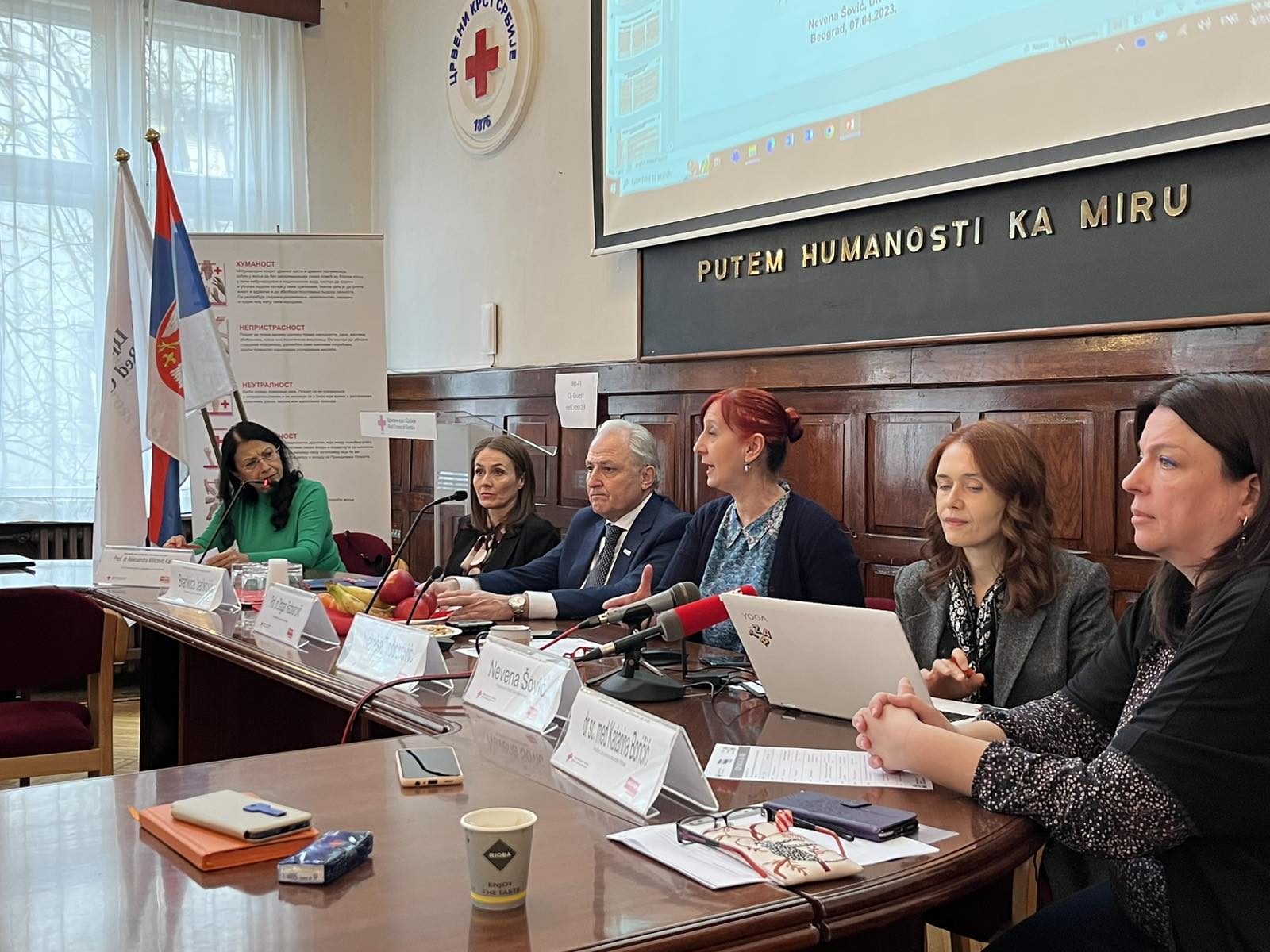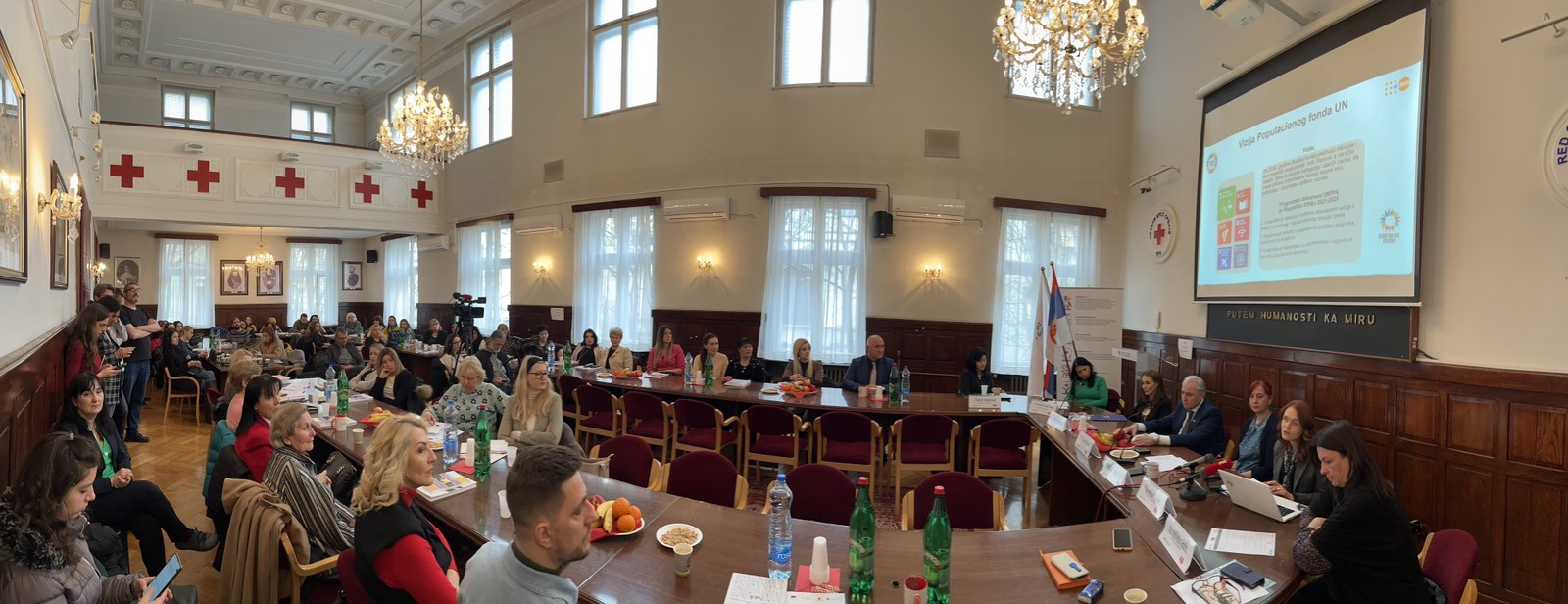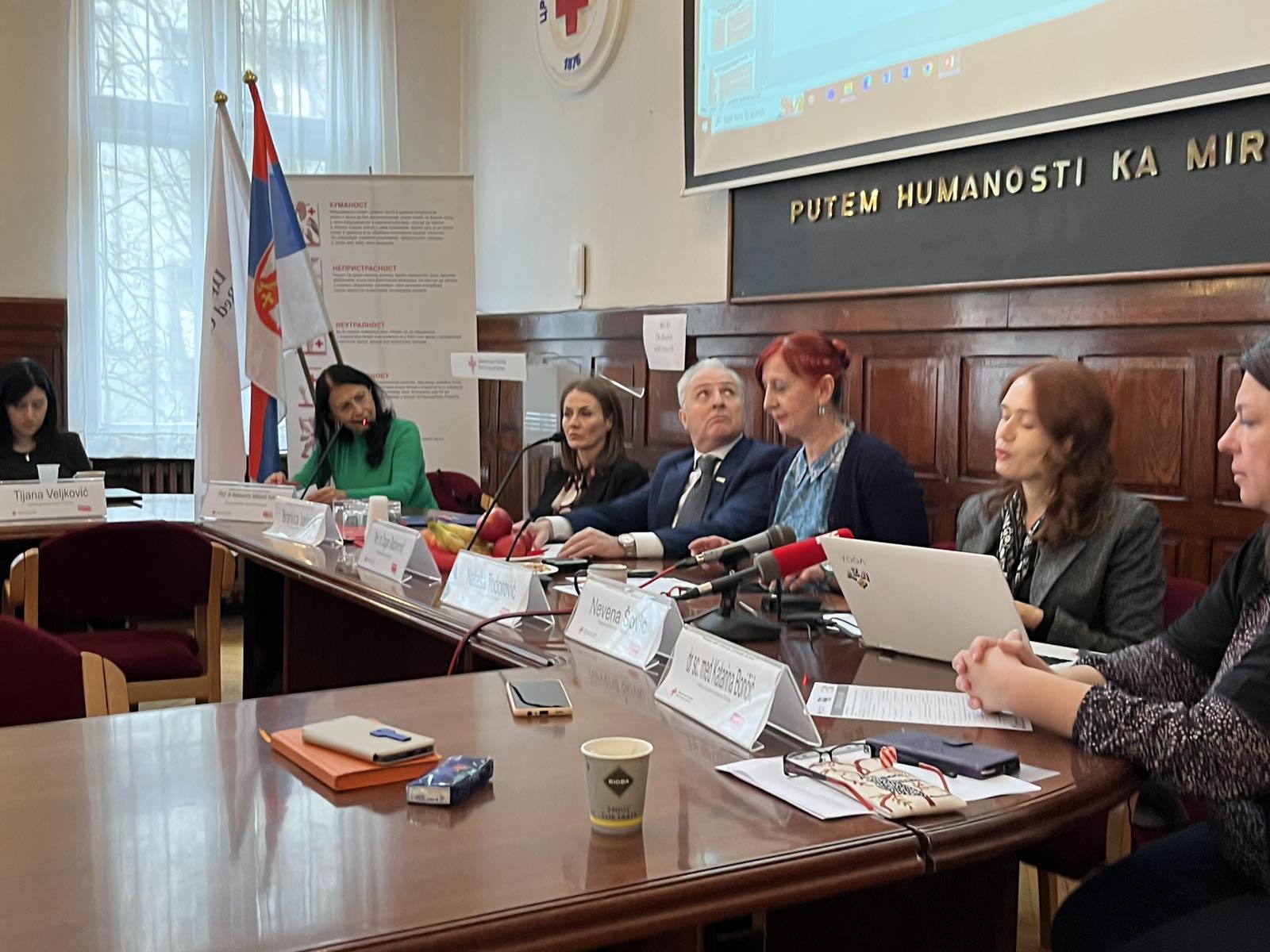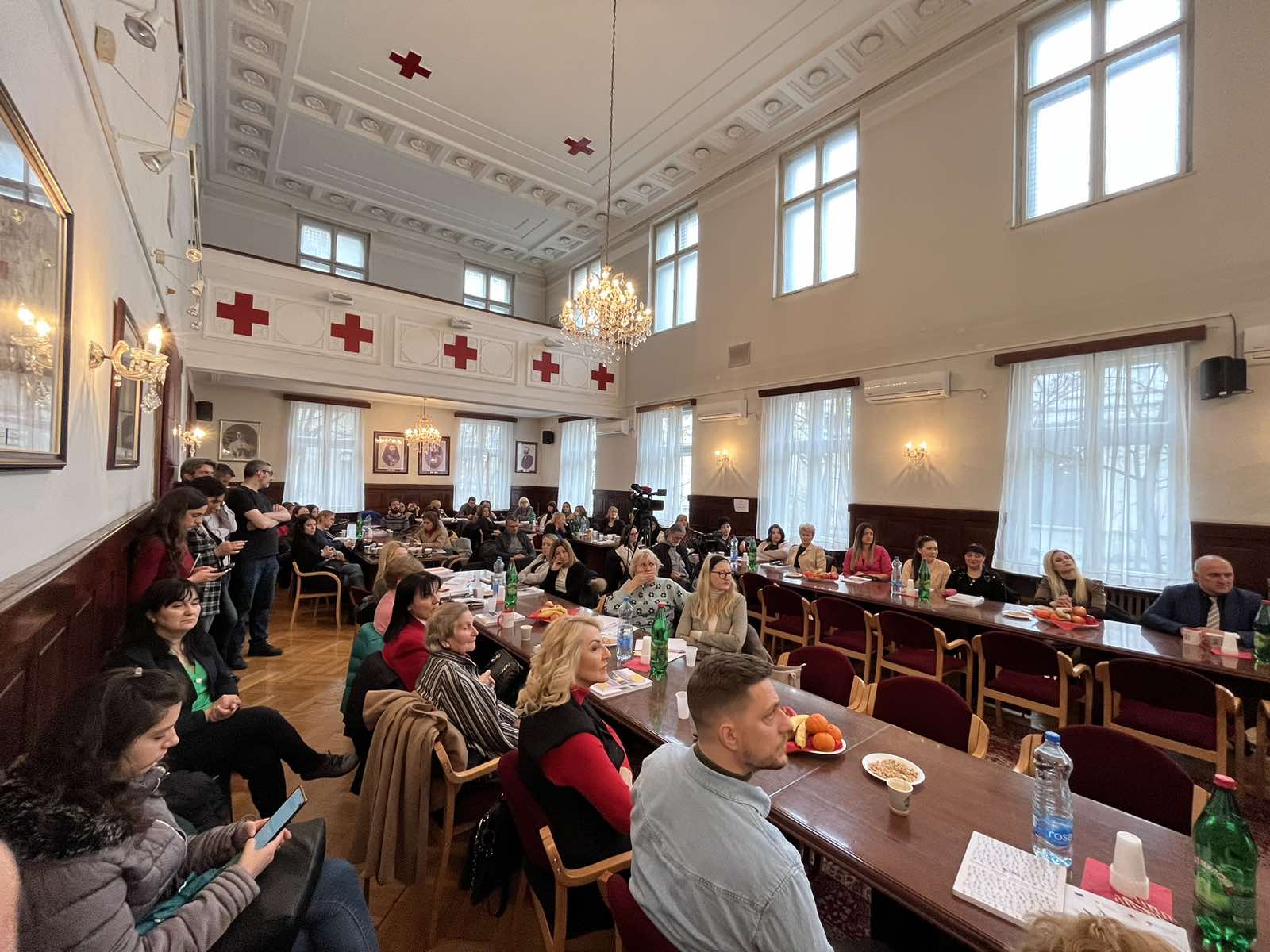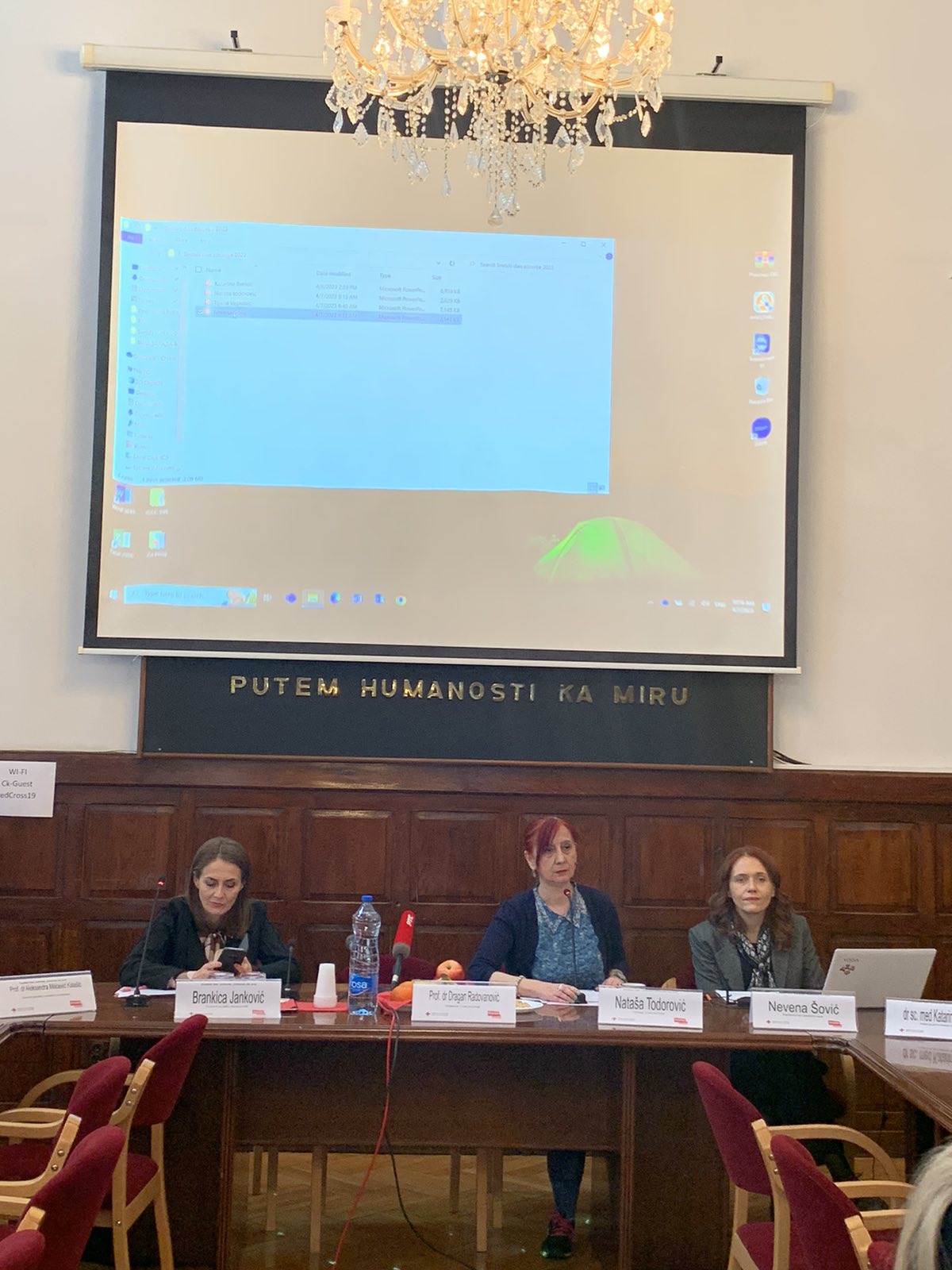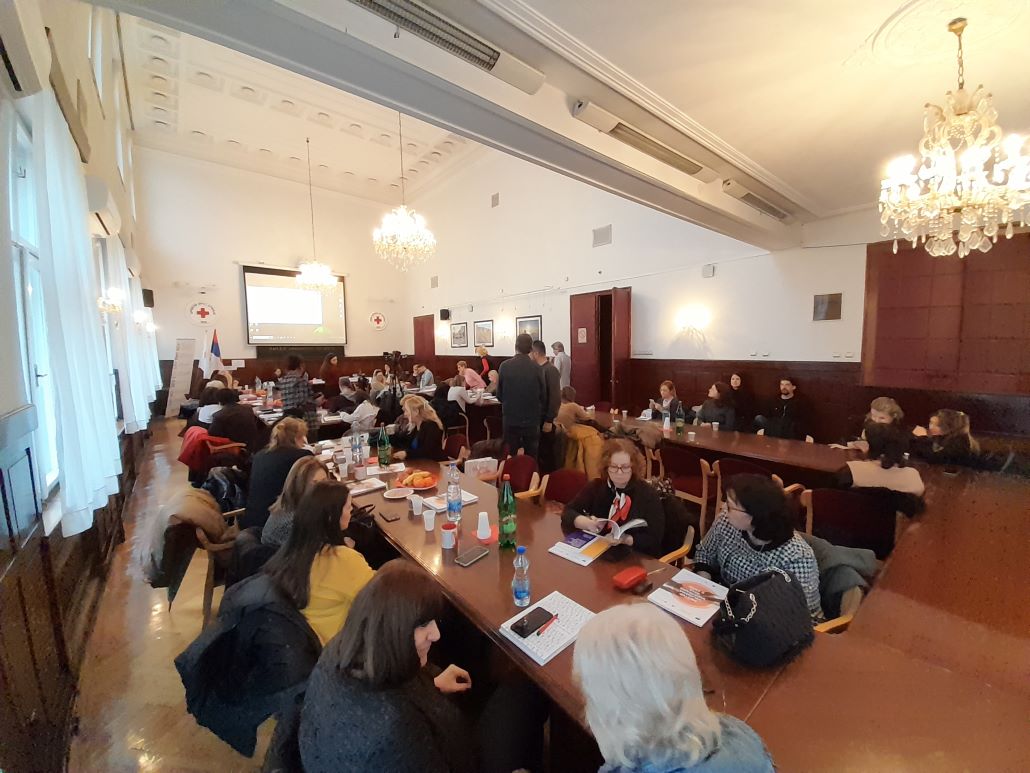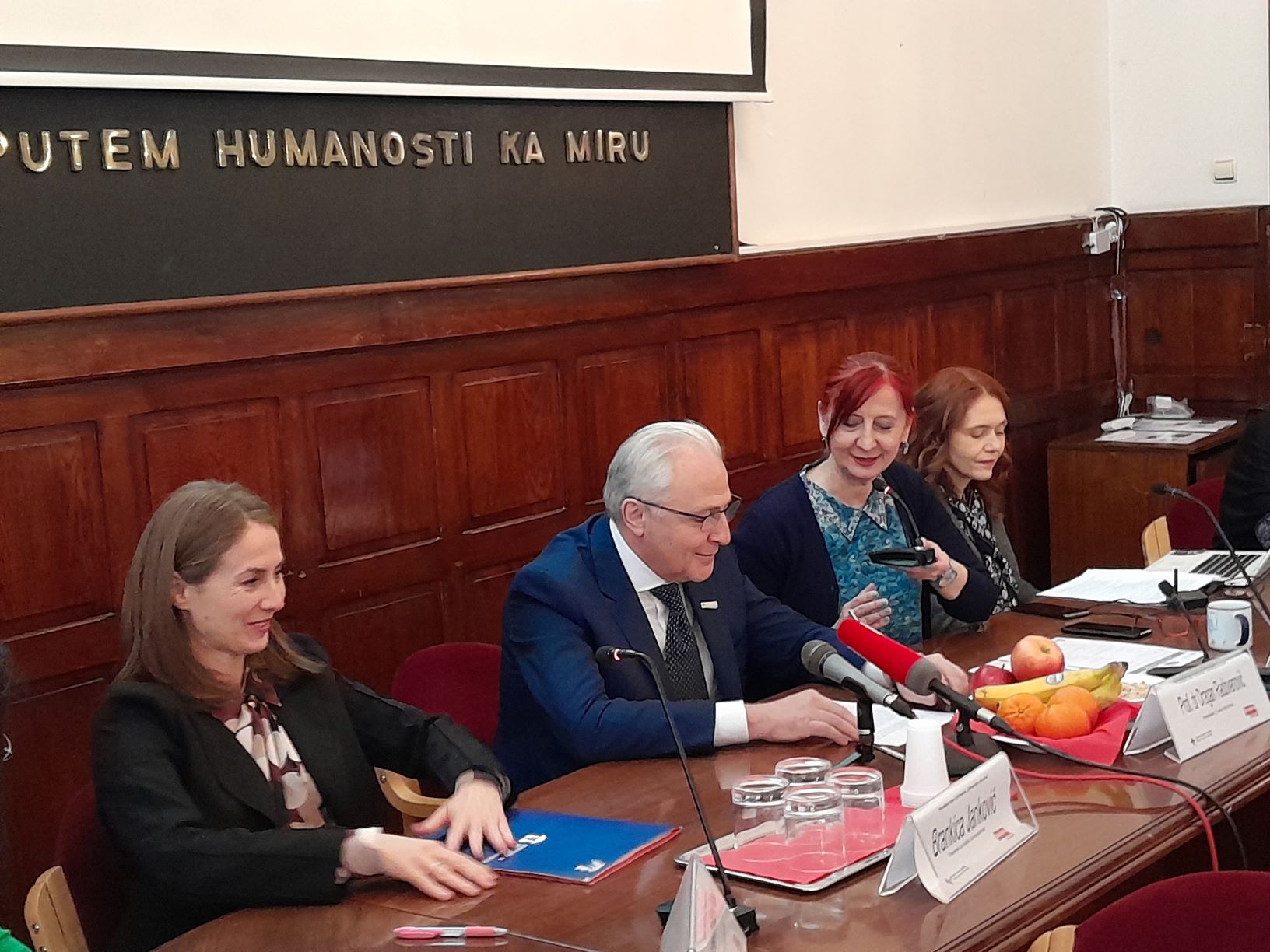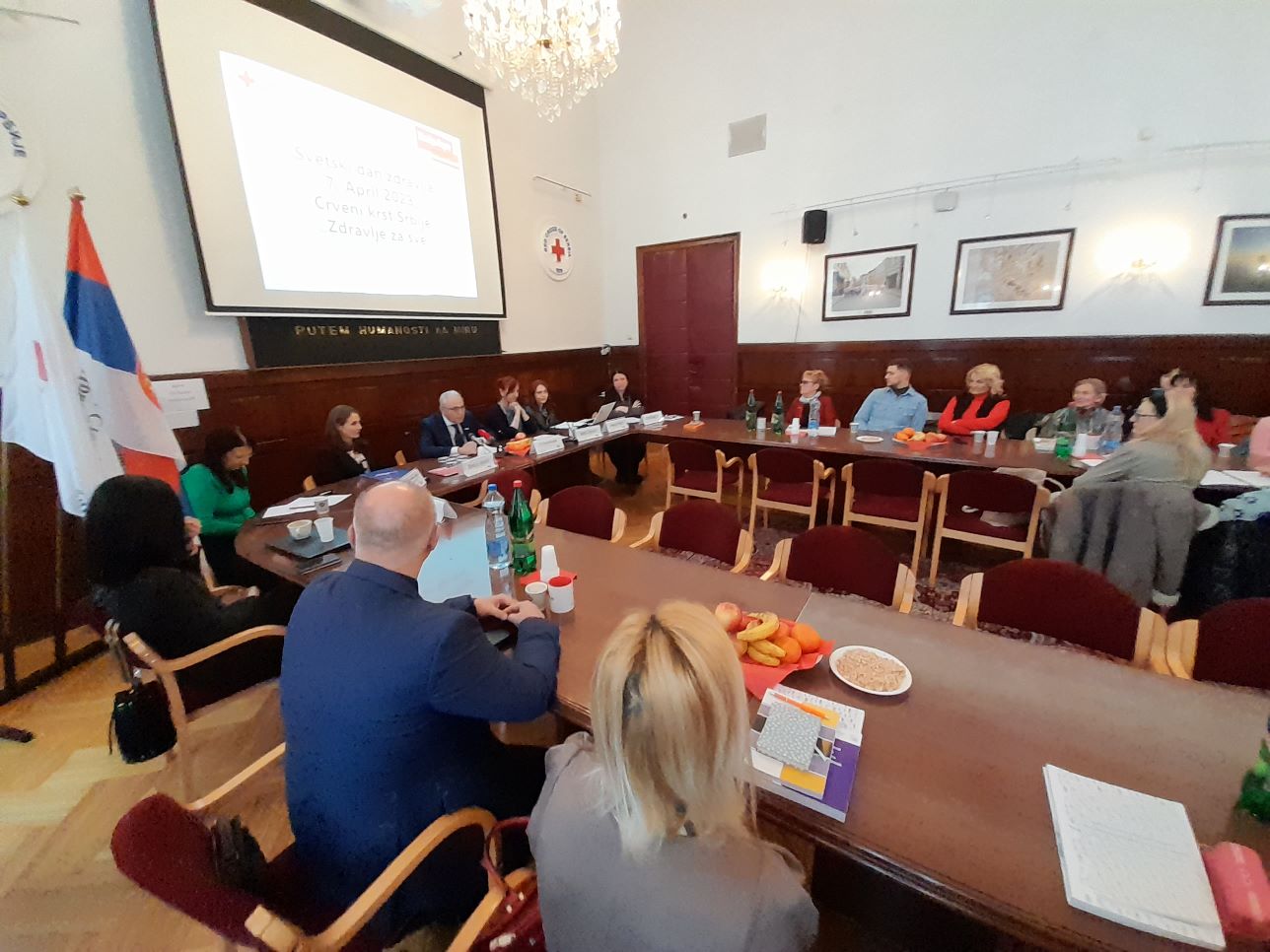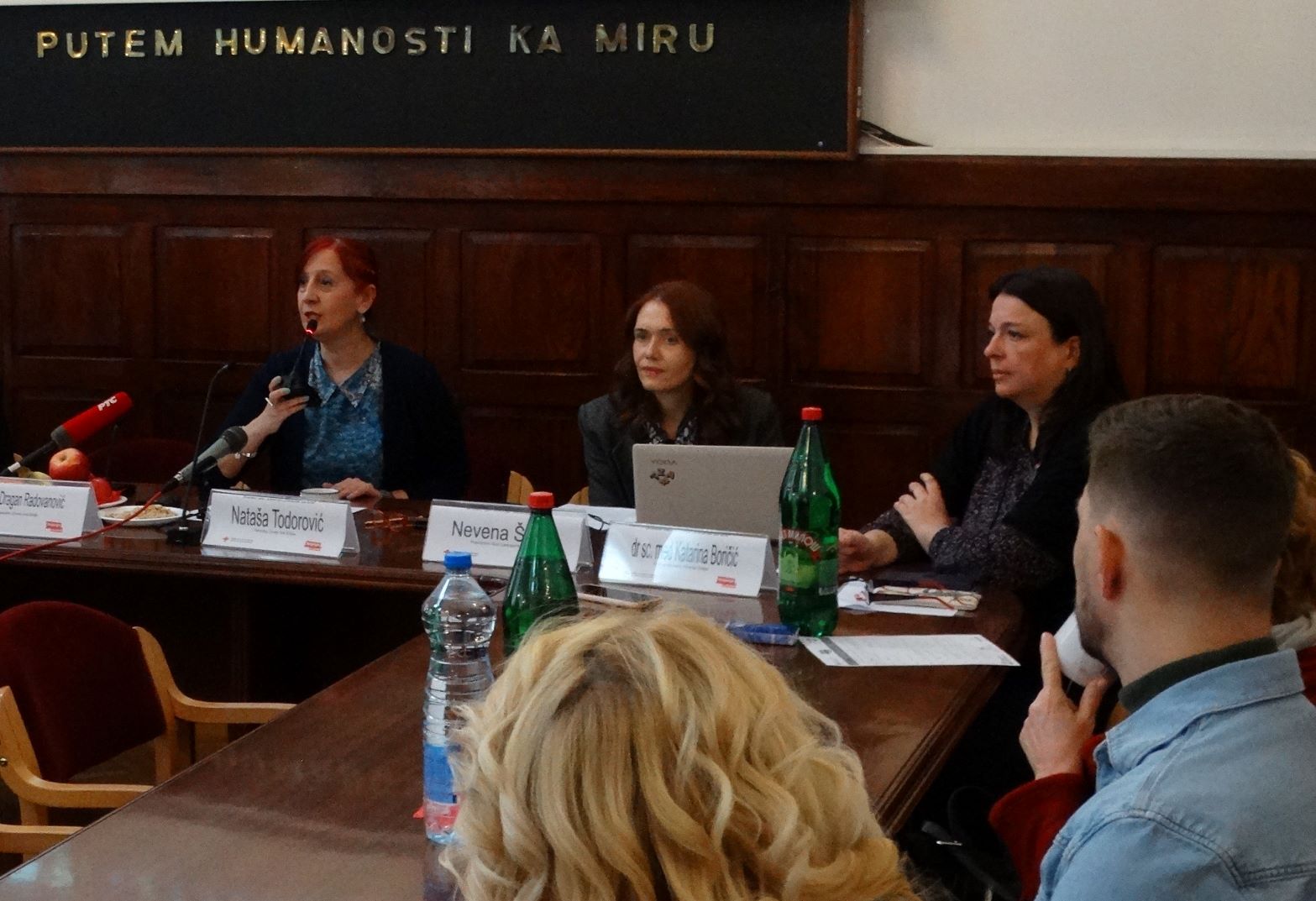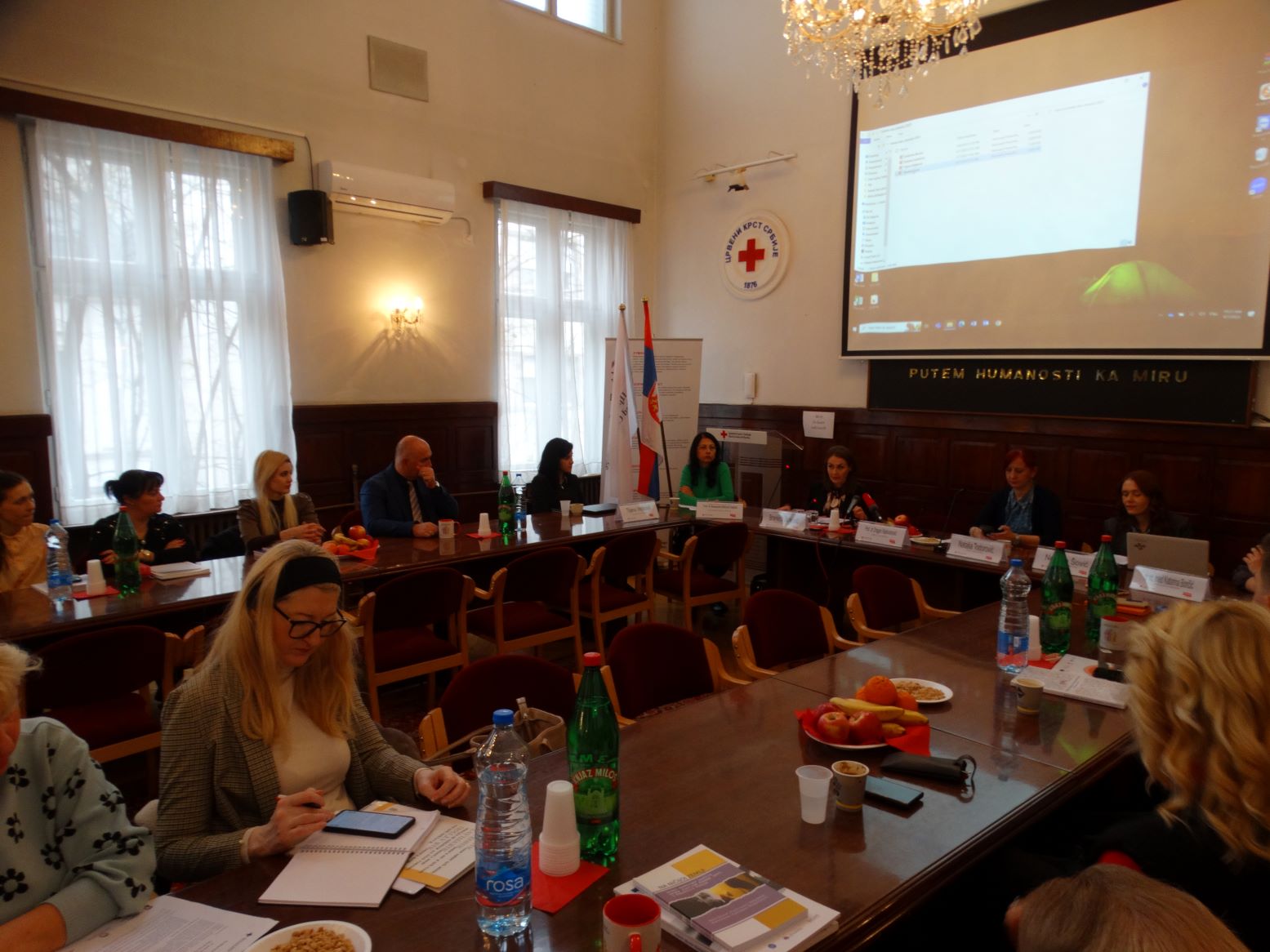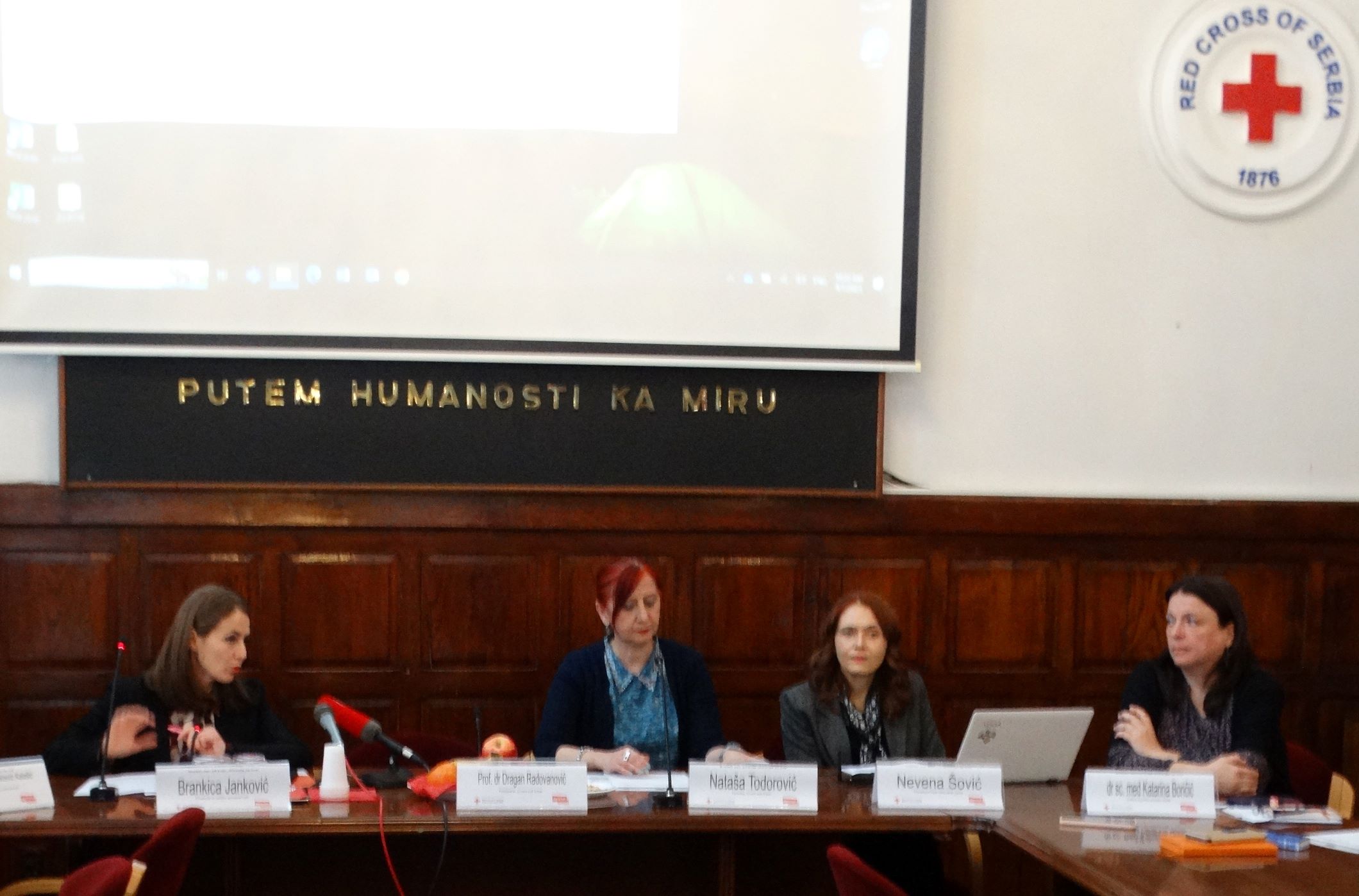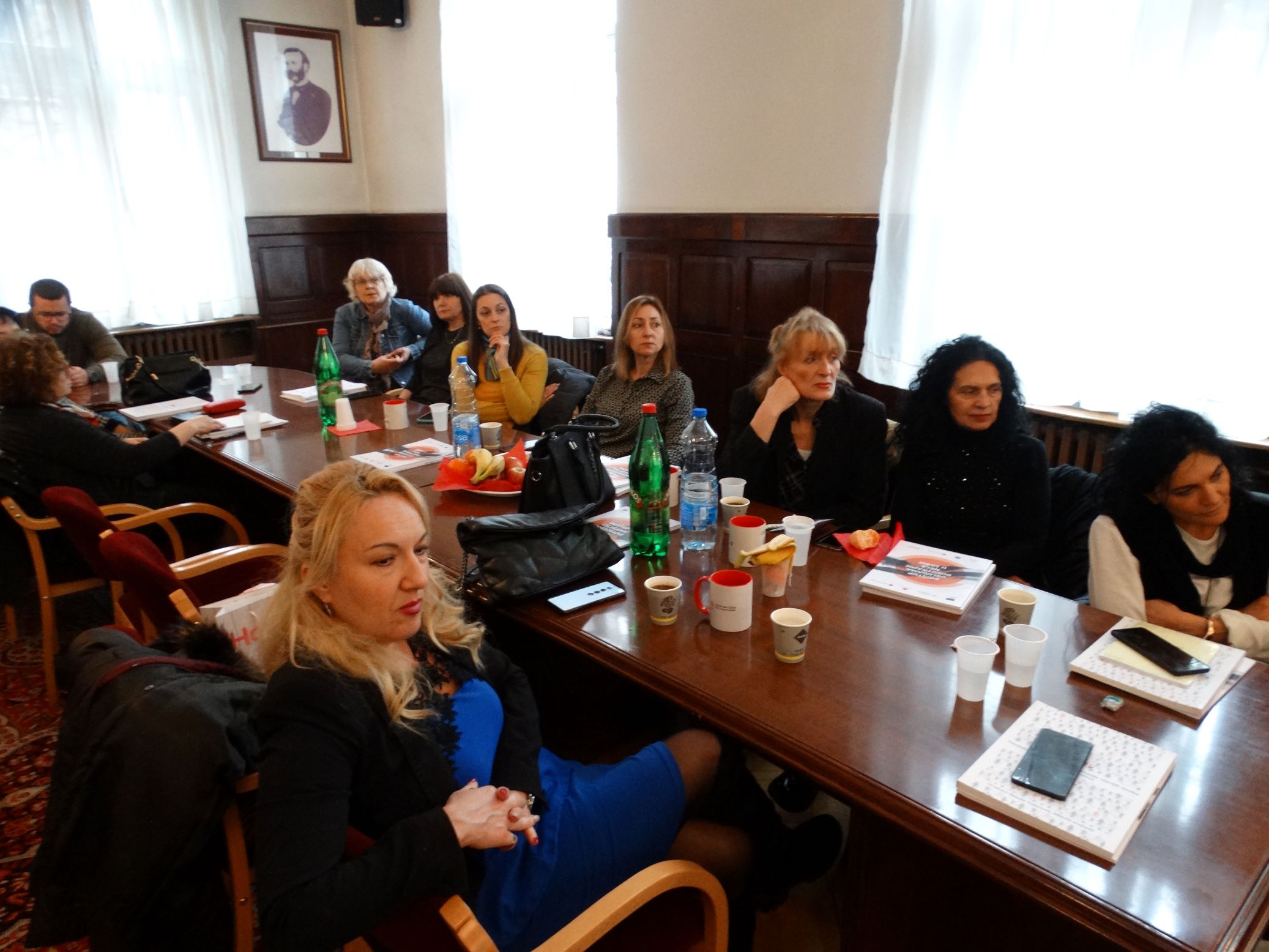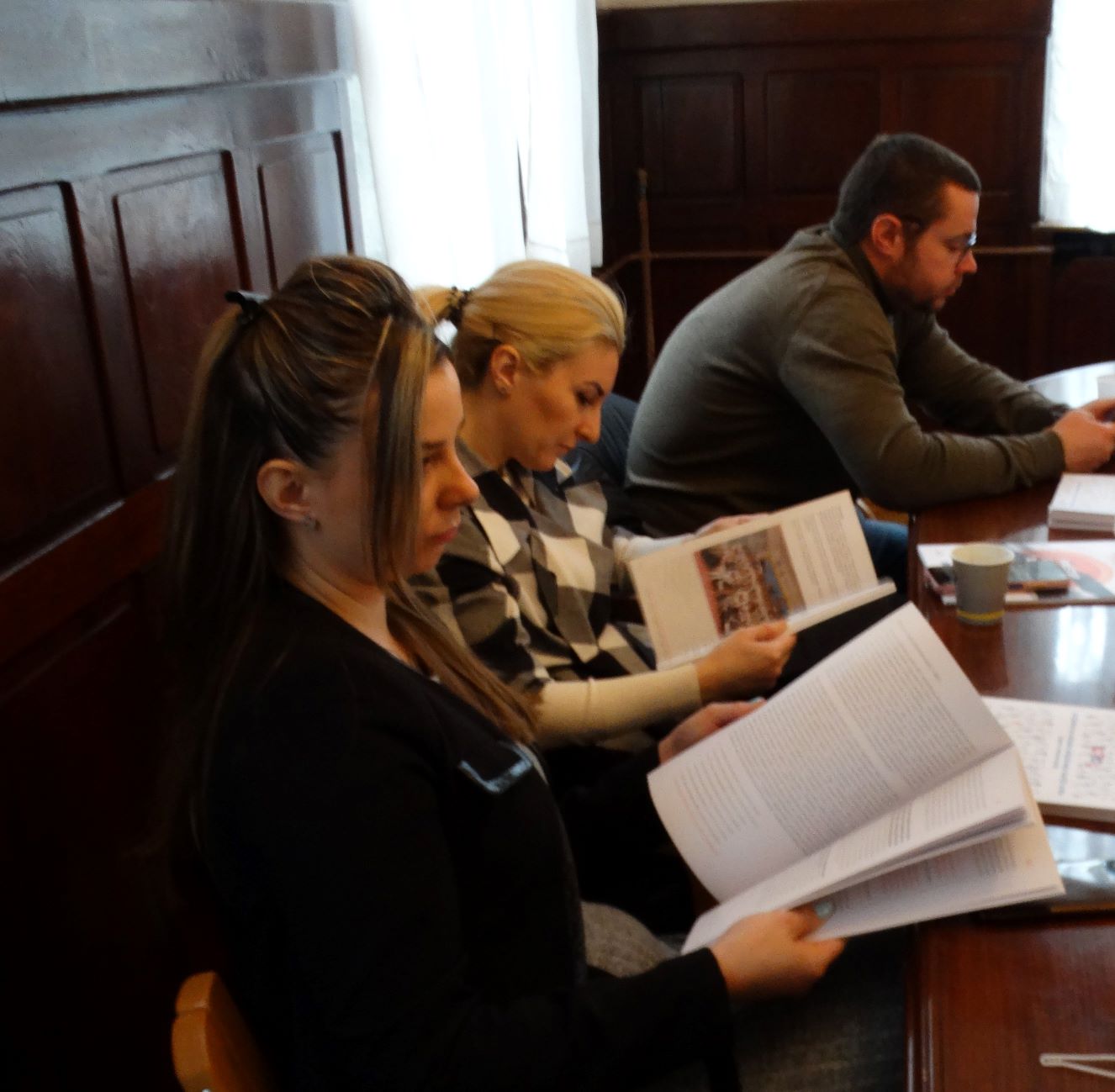World Health Day observed
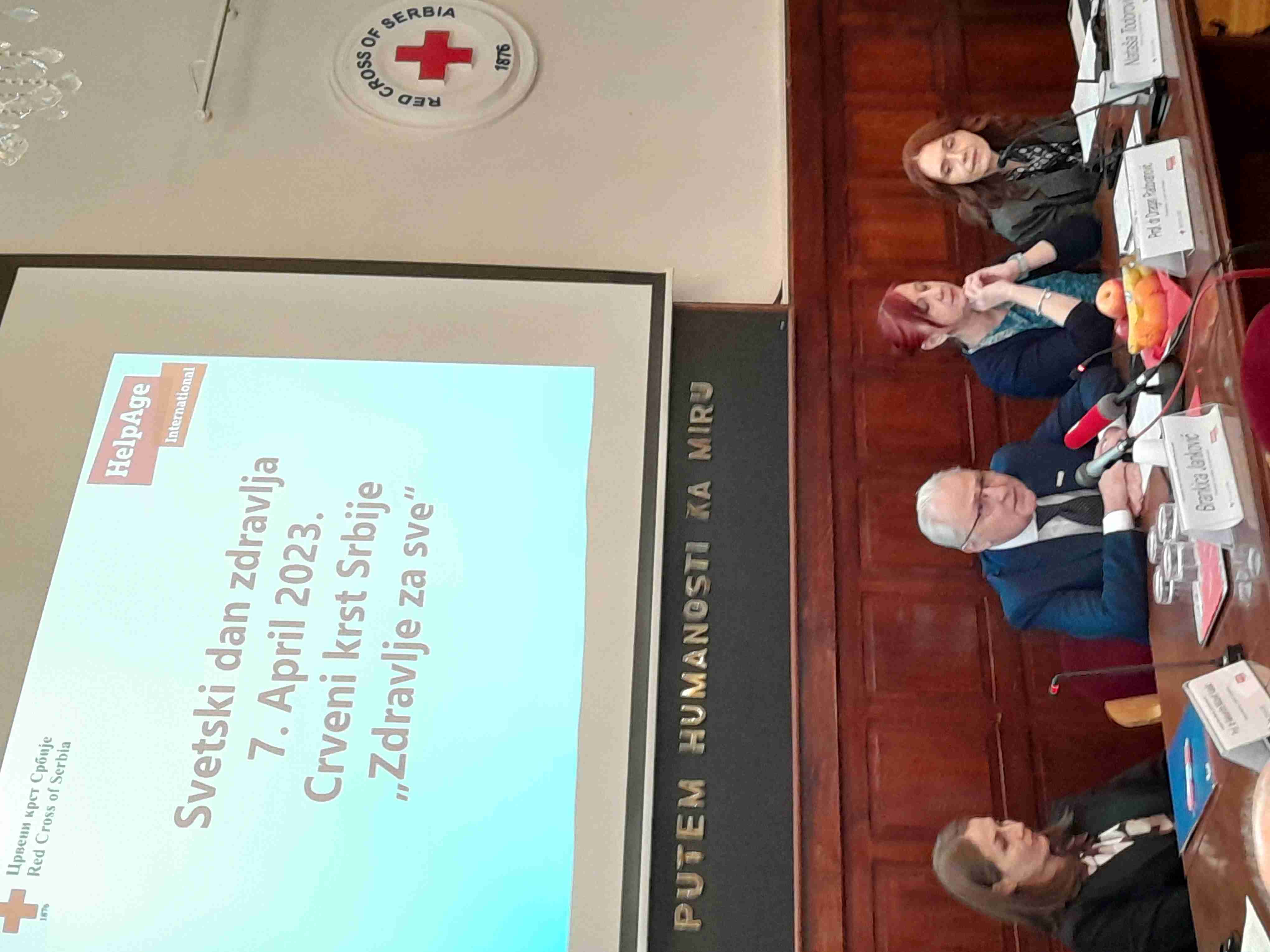
Today, in the premises of the Red Cross of Serbia, the World Health Day was marked with the conference entitled “Health for All”, with the participation of Prof. Dr. Dragan Radovanović, President of the Red Cross of Serbia, Brankica Janković, Commissioner for the Protection of Equality, Nevena Šović from the United Nations Population Fund, Nataša Todorović from the Red Cross of Serbia, Tijana Veljković from SeConS, Ph.D. Katarina Boričić from the Institute for Public Health of Serbia “Dr. Milan Jovanović Batut” and prof. Dr. Aleksandra Milićević Kalašić, from the Faculty of Media and Communication.
Conference participants agreed that healthy lifestyles and health promotion should be strongly supported, as well as that the public policy pertaining to health should be continuously improved, since the right to health is a basic human right. It was emphasized that every person must have access to the necessary health services, at the time and place when they need these services, as well as that the quality of the service must be appropriate, and the service itself is not only physically accessible but also financially affordable.
The participants pointed out that one third of the world's population currently does not have access to basic health services, and that this represents a special health challenge for all of us.
Radovanović said that the Red Cross of Serbia pays significant attention to health-preventive activities in its work. During the past year, according to his words, the Red Cross of Serbia held 2,147 workshops promoting healthy lifestyles as part of these activities, including more than twenty thousand children under the age of fourteen, more than eleven thousand young people under the age of 30, more than seven thousand adults aged 30 to 64 and more than three thousand over 65.
Adopting healthy lifestyles reduces risky behavior. That is why the Red Cross of Serbia organizes workshops for all generations, for parents and for children. Radovanović emphasized that 1,090 workshops aimed at preventing addiction were held. “More than thirteen thousand participants have attended our training workshops related to the prevention of sexually transmitted infections and HIV, and we have organized seventeen theater performances and other similar public activities on this topic” he said.
Janković said that public policy makers should immediately adapt the health care system to the demographic structure, since it will not change soon. She stressed that it is necessary for older persons to be more involved and to make it easier for them to get the necessary health care, and Professor Milićević Kalašić emphasized that there is no health without mental health.
This year's World Health Day conference at the Red Cross of Serbia was an ideal opportunity to talk more about the health of older persons as the fastest growing demographic group both in our country and in the world. Katarina Boričić presented the results of the population health survey, according to which almost a third of older population in Serbia (approximately 40%) rated their own health as very good and good, while approximately 27% rated their health as bad and very bad, which is a shift in the positive direction compared to 2013, when over 22% of older population rated their health as good and very good.
Nataša Todorović spoke about the importance of Universal coverage of health care services as the foundation of the “health for all” concept, which is the chosen theme of this year's World Health Day. She also reminded the audience that access to quality health and care services throughout life is essential to support healthy aging for all. She explained that it is crucial that health systems are age, gender and disability sensitive and promote healthy aging through integrated primary and community services that reach the furthest behind first. Universal health coverage therefore adopts a rights-based approach, ensuring that the voices of all groups, including older persons, are heard in the process of system design, service delivery, monitoring and evaluation.
Tijana Veljković presented the research that the Red Cross of Serbia and SeConS jointly carried out within the regional project “Strengthening resilience of older persons and persons with disabilities during the COVID-19 crisis and future disasters” funded by the European Union and the Austrian Development Agency, which is coordinated in the region by the Red Cross of Serbia. This research shows that the majority of older persons and persons with disabilities are satisfied with the quality of health and social care services provided in the community, but that they would like more services to be available. She also emphasized the necessity of closer coordination of the provision of social and health care services.
This year on April 7, the World Health Day, the World Health Organization celebrates its 75th anniversary. In 1948, the countries of the world came together and founded the WHO to promote health, make the world safer and help the vulnerable so that everyone, everywhere can reach the highest level of health and well-being.
